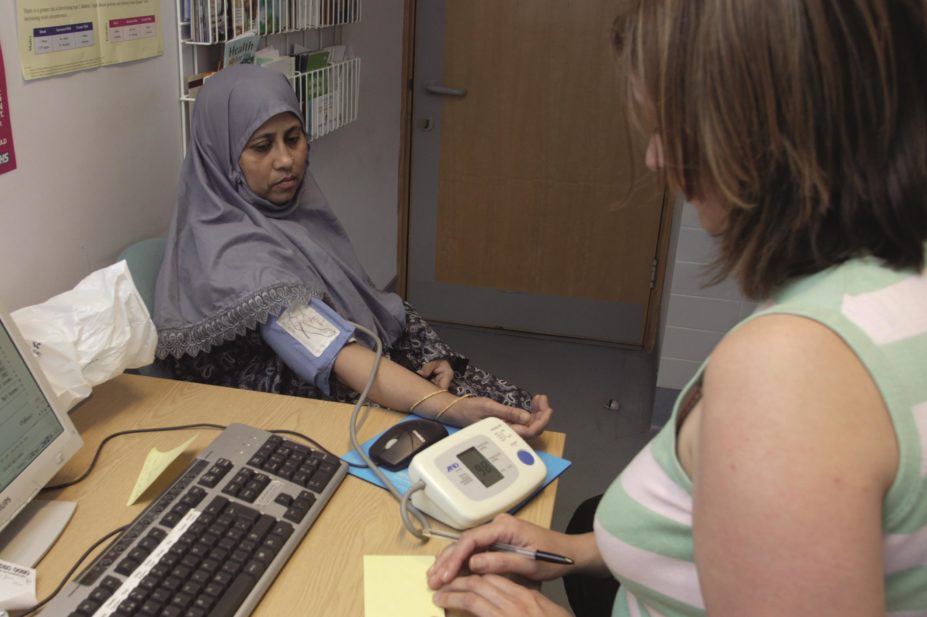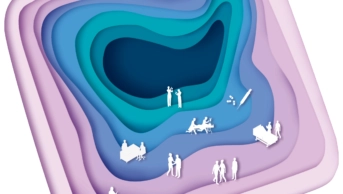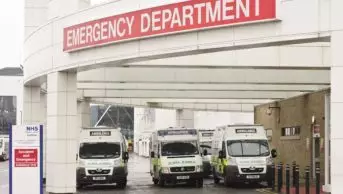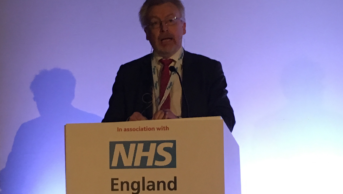
Photofusion Picture Library / Alamy Stock Photo
More than seven million patients will soon be able to get advice from a clinical pharmacist when they visit their GP, thanks to NHS England’s clinical pharmacists in general practice scheme, which will see one senior clinical pharmacist and five clinical pharmacists based in each local surgery pilot site.
Many GP practices already employ pharmacists in patient-facing roles, but the aim of the pilot is to build on these successes and further integrate pharmacists into the general practice team.
Responsibilities and tasks
Clinical pharmacists in GP surgeries will resolve day-to-day medicine issues and consult with and treat patients directly. This includes providing help to manage long-term conditions, advising those taking multiple medicines (polypharmacy) and delivering clinical advice about treatments. They will also assist with communication across a patient’s care pathway, manage medicines shortages by suggesting suitable alternatives where appropriate, and mentor newer pharmacists.
Surgeries that wanted to be part of the pilot had to bid for their place, which meant submitting a detailed application, including predicted key performance indicators and a summary of how they envisage using the skills of the practice pharmacists. “Because GPs do not historically employ pharmacists this was a challenge for many of them,” says Rena Amin, joint associate director, medicines management, at NHS Greenwich Clinical Commissioning Group and clinical associate at Hartland Way Surgery in Croydon, London. “They had to think about what they expect the pharmacist to do and work out who will manage them on a day-to-day basis — which is much more specific than many practices that work with pharmacists have had to be in the past.”
Tensions and highlights
Elaine Hutton is a practice pharmacist at New Hall Surgery in Hull, and founder and administrator of www.pharmacy-forum.co.uk. She says she has had “no tensions with any of the staff at the surgery”, and there are many highlights of the role. “It is so much more interesting than being a community pharmacist,” she says. “To work in community you probably use about 1% of what you learnt to qualify, but this is so much more. It is the role a pharmacist was trained to do.”
Amin says some GPs have told her “they don’t want a pharmacist because they could show them up, and I have heard that nurses wonder what will be left for them to do”. However, she thinks “there is plenty of work for all of us as long as we don’t duplicate. This means practices need to be clear from the start about what they want the pharmacists to do, but this also needs to be understood by the whole practice team”.
Past experience
With many practices currently recruiting, there are opportunities for pharmacists wanting to get into these roles, even if they have not worked in a GP practice before. Or, like Hutton, pharmacists could seek out the role themselves.
After seeing a report on the BBC about GPs wanting pharmacists to work in their surgeries to help reduce pressure on ever decreasing numbers of primary care doctors, Hutton contacted the senior partner at a nearby surgery and asked if he had ever thought of employing a practice pharmacist.
After meeting for an informal chat with him, followed by a presentation and discussion with the other partners and some of the staff, she now works for the practice three days a week seeing patients, doing medication reviews, implementing policies (for example, reducing the use of non-steroidal anti-inflammatory drugs or proton pump inhibitors) and, she says, “basically anything to do with drugs that the staff ask me to do”.
Hutton recommends that anyone considering the job needs “experience in general, a willingness to learn and to be able to get on with people”. Amin believes “there are many skills that are transferable from community pharmacy: business skills, analytical skills, consultation skills, time management, record keeping and working in a solo environment.” However, she stresses that practice pharmacists should be “confident to work within their own competencies but [should not] be afraid to ask for help and extra training where needed”.
Skills and training
When it comes to the pilot, all pharmacists who participate are expected to undertake predominantly workplace-based development and education provided by the Centre for Postgraduate Pharmacy Education (CPPE).
The 18-month Developing Clinical Pharmacists In General Practice national learning pathway — drawn up in conjunction with GP practice pharmacists, Health Education England, NHS England, pharmacy educators and the Royal Pharmaceutical Society (RPS) — will train clinical pharmacists to work in general practice within core themes of:
- Fundamentals of general practice
- Prescribing
- Clinical assessment, examination and monitoring
- Consultation and communication skills
- Long-term condition management
- Common ailments management
- Medicines optimisation, multimorbidity and polypharmacy
- Evidence-based medicine and safety
- Leadership and management
This pathway will be underpinned by the RPS advanced practice framework and is further supplemented by the core practice curriculum. CPPE expects that successful completion of the pathway will enable trainees to apply for RPS Faculty membership.
Funding and evaluation
NHS England, Health Education England, the Royal College of General Practitioners (RCGP) and the British Medical Association’s GP committee are working with the RPS on the scheme, which NHS England will co-fund alongside practices.
Currently, 73 applications will receive a share of the £31m pilot funding, which will cover 698 GP practices and include 403 clinical pharmacists. NHS England will part-fund the pharmacists’ salaries for 36 months for pharmacists in post before 31 March 2016 to the tune of:
- 60% for the first 12 months of employment;
- 40% for the second 12 months;
- 20% for the third 12 months.
After this time period, if the posts have been of benefit to patients, GPs and practices, they will then be funded wholly by the practice, cluster or federation.
Challenges of the role
Like any new initiative, there have been teething problems. Amin says many practices applying for the pilot “got stuck in a bottleneck as they are not really set up to do these kinds of applications, and then there are the challenges of attracting the right people when you advertise”.
As far as challenges for pharmacists taking on the job, Amin suggests applicants “get a clear remit for their role and what it is they will be expected to do”.
“GPs must clarify the needs of the practice and match those with the skills of the pharmacist so they do not need extra time to catch up,” she says. “For example, some practices want a minor ailment triaging role and pharmacists may need support in terms of telephone consultations. If you want to apply, find out about the leadership in the practice and what support you can access if you get stuck.”
Ahead of the curve
Mike Holmes is a partner at the Haxby Group of ten GP surgeries in York and Hull, and clinical lead for the RCGP’s supporting federations programme, which helps practices collaborate and work at scale to improve services in primary care.
The Haxby Group has had practice pharmacists for four years and now has three — two in York and one in Hull. It is also part of the clinical pharmacists’ pilot with five more pharmacists set to be in post by the end of July 2016.
“We started with one practice pharmacist who worked on their own for three years after we realised GPs were spending up to 60 hours per week reauthorising prescriptions,” says Holmes. “We brought in a 35-hour contract pharmacist and she was able to do all that, which resulted in fewer errors, faster turnaround, an improved patient service, and freed those 60 hours of doctor time per week, which was amazing.”
Holmes says issues with GP recruitment mean that “the workforce has to evolve, and bringing in pharmacists and other clinical practitioners to work hand in hand with our doctors is one way we can address the workforce challenges we are seeing at the moment”.
“We’ve been doing it for a while and it’s working well,” he says. “Patients are getting a better service and the internal workload is rescued from the doctors so we can focus on other patient-facing services. It’s difficult to see a negative — although maybe cost is something that puts practices off — but if the NHS is going to survive and thrive we have to see more of that happening.”
Future opportunities
Aside from new professional stimulation, working as a GP practice pharmacist can open up further career opportunities. “It is one of the most amazing roles and patients value it, especially now with more complex medicines, polypharmacy and the fragmentation of care between agencies,” says Amin. “Community pharmacists are entrepreneurial so it could even lead you to aspire to be a partner or manage a group of surgeries.”
For Hutton the message is clear: “You don’t know what doors will open up for you unless you push in the first place,” she says. “I sent an email on the off chance something might happen, and it has.”
For more information on CPPE training for developing clinical pharmacists in general practice, visit: www.cppe.ac.uk/career/gpptp-faqs
Elaine Hutton is happy to answer any questions about her experience and share a copy of her presentation on the role of a pharmacist in a GP primary care setting. To contact her, visit www.pharmacy-forum.co.uk/showthread.php?t=10721
Reading this article counts towards your CPD
You can use the following forms to record your learning and action points from this article from Pharmaceutical Journal Publications.
Your CPD module results are stored against your account here at The Pharmaceutical Journal. You must be registered and logged into the site to do this. To review your module results, go to the ‘My Account’ tab and then ‘My CPD’.
Any training, learning or development activities that you undertake for CPD can also be recorded as evidence as part of your RPS Faculty practice-based portfolio when preparing for Faculty membership. To start your RPS Faculty journey today, access the portfolio and tools at www.rpharms.com/Faculty
If your learning was planned in advance, please click:
If your learning was spontaneous, please click:



